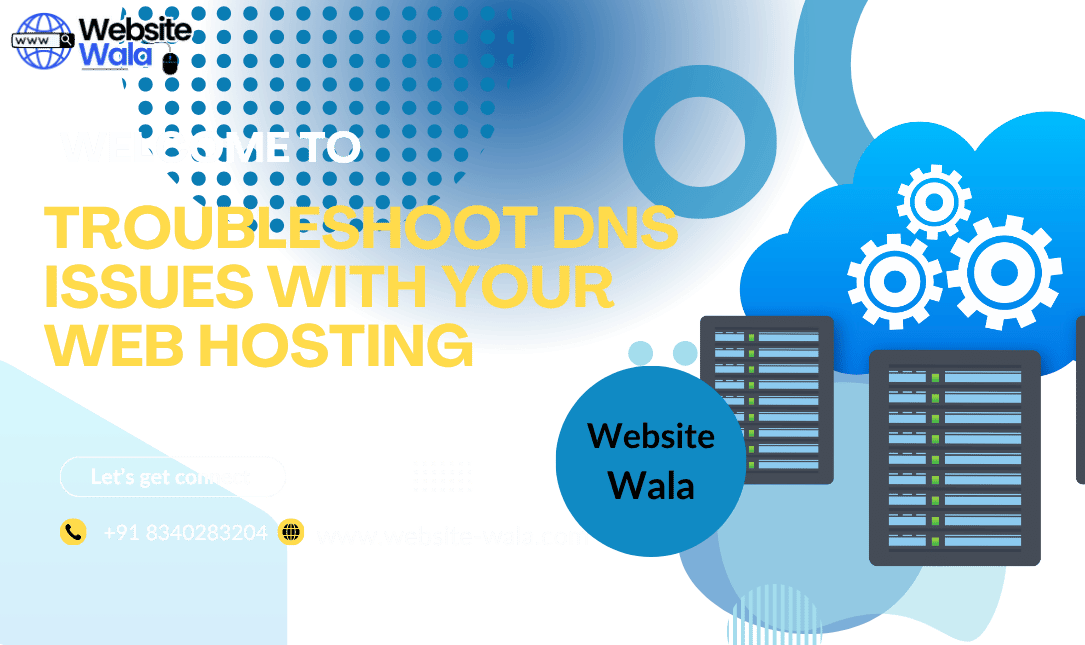
Learn How to Use Hosting Features to Improve Website Security and protect your site from cyber threats with robust online security measures.
Introduction
In today’s digital era, protecting your website is more important than ever. Cyber threats are increasing, and websites without proper safeguards are vulnerable to attacks that can compromise sensitive data, disrupt services, and damage brand reputation. One of the most effective ways to enhance website security is by leveraging your hosting provider’s built-in features. Understanding how to use hosting features to improve website security can make a significant difference in safeguarding your online presence.
This article explores essential hosting tools and practices to ensure maximum website protection and data protection.
Understanding the Importance of Website Security
Before diving into hosting features, it’s crucial to understand why website security matters. Cybercriminals often exploit weak points in websites to inject malware, steal sensitive data, or launch phishing attacks. Without robust protection, businesses can face financial loss, downtime, and reputational damage.
Implementing strong web hosting security measures can mitigate these risks and ensure consistent online security for your site visitors and data.
How Hosting Features Can Improve Website Security
Web hosting providers offer a variety of tools specifically designed to strengthen your site’s defenses. Here’s a breakdown of critical hosting features and how they contribute to website protection:
1. Firewalls
A firewall acts as a barrier between your website and malicious traffic. Most hosting providers include firewall options that filter out suspicious activity and prevent unauthorized access. Configuring firewalls correctly can significantly reduce the risk of hacking attempts, malware, and DDoS attacks.
By understanding how to use hosting features to improve website security, you can customize firewall rules to block specific threats and enhance your overall web hosting security.
2. SSL Certificates
SSL certificates encrypt the data transmitted between your website and visitors, ensuring that sensitive information such as login credentials and payment details remain secure. Hosting providers often offer free or premium SSL certificates that can be installed with minimal effort.
Leveraging SSL certificates not only strengthens your online security but also improves your site’s credibility and SEO rankings. Incorporating SSL into your security strategy is a key step in learning how to use hosting features to improve website security effectively.
3. Regular Backup Solutions
Data loss can occur due to cyber attacks, server failures, or human errors. Hosting providers typically offer automated backup solutions that store multiple copies of your website data. This ensures that, in case of an emergency, your website can be restored quickly with minimal downtime.
Understanding how to use hosting features to improve website security means taking full advantage of backup solutions to maintain data protection and website protection.
4. Malware Prevention Tools
Many hosting providers include malware scanning and prevention tools that detect and remove malicious code before it can compromise your site. Using these tools regularly ensures proactive malware prevention, keeping your website safe from cyber threats.
When implemented properly, these features provide a solid defense layer, highlighting a practical approach to how to use hosting features to improve website security.
5. Secure FTP and Access Controls
Managing access to your website is critical for online security. Hosting features such as secure FTP (SFTP) and multi-factor authentication (MFA) help prevent unauthorized access. Additionally, restricting permissions for users and staff ensures that sensitive files remain protected.
These access control measures are central to how to use hosting features to improve website security and maintaining overall web hosting security.
Advanced Hosting Features for Enhanced Security
Beyond basic tools, advanced hosting features can further strengthen your website’s defenses. These include:
-
DDoS Protection: Prevents distributed denial-of-service attacks that can overwhelm your server.
-
Intrusion Detection Systems (IDS): Monitors for suspicious activity and alerts you to potential threats.
-
Automated Security Updates: Keeps your website platform, plugins, and scripts up-to-date to prevent vulnerabilities.
Utilizing these advanced features demonstrates a proactive approach to website security and reinforces the importance of how to use hosting features to improve website security.
Best Practices for Using Hosting Features
To maximize the benefits of hosting features, consider the following best practices:
-
Regularly Monitor Security Logs: Review server logs to identify unusual activity.
-
Implement Layered Security: Combine firewalls, SSL, backups, and malware scans for comprehensive website protection.
-
Stay Updated: Ensure your website’s CMS, themes, and plugins are always current.
-
Educate Your Team: Train staff on secure practices, such as using strong passwords and avoiding phishing scams.
By following these practices, you can effectively leverage hosting features for robust web hosting security and strengthen your data protection measures.
Benefits of Using Hosting Features for Website Security
The advantages of incorporating hosting features into your security strategy include:
-
Reduced risk of cyber attacks and malware infections
-
Improved trust and credibility among visitors
-
Faster recovery from incidents thanks to automated backup solutions
-
Enhanced compliance with data protection regulations
Learning how to use hosting features to improve website security not only protects your website but also fosters a safer internet environment for all users.
Conclusion
Cyber threats are constantly evolving, making it essential for website owners to prioritize online security. By understanding how to use hosting features to improve website security, you can leverage firewalls, SSL certificates, backup solutions, malware prevention tools, and advanced security features to safeguard your website.
Implementing these measures ensures website protection, strengthens web hosting security, and maintains data protection for your users. Regular monitoring, updates, and adherence to best practices will maximize the effectiveness of these hosting features.
Investing time in understanding and applying these tools is a proactive step toward creating a secure online presence and demonstrating your commitment to website security.























